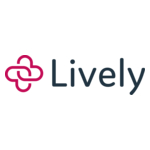Amidst America’s Mental Health Crisis, 60% of Employees Are Not Utilizing Mental Health Coverage

Lively’s Third Annual Wellness and Wealth Report Shows The Impact of Economic Uncertainty, Rising Healthcare Costs and Inflation
SAN FRANCISCO–(BUSINESS WIRE)–#HSA—Lively, Inc., Lively, the top-rated benefit solutions provider known for creating the modern Health Savings Account (HSA), today released its third annual Wellness & Wealth Report giving a view into American healthcare trends for employers making benefits decisions. The study, conducted by CITE Research on behalf of Lively, reveals the frightening economic reality of individuals and families in 2022: Rising costs of healthcare coupled with widespread economic uncertainty have resulted in over half of Americans (52 percent) struggling to pay for medical expenses leading 50 percent to ignore doctor recommendations and 46 percent to delay and skip medications.
While uncertainty about the future impacts Americans’ physical well-being, it has also sparked a mental health crisis nationwide. According to the US Census Bureau’s Household Pulse Survey, at the end of 2021, 32 percent of adults reported symptoms of anxiety or depression, and 1 in 5 adults disclosed suffering from a mental illness. However, survey findings show that most Americans (60 percent) have not accessed mental health services within the last year, and 40 percent have no savings for mental health costs.
Now more than ever, employers need to offer personalized healthcare coverage and education to employees, particularly when it comes to mental health services and financial wellbeing.
“As healthcare costs and inflation rates rise, Americans should not be forced to put their physical and mental health on the back burner, says Shobin Uralil, co-founder and COO of Lively. “Employers must consider offering a variety of plans and savings options like a health savings account (HSA) – empowering employees to invest in their health and lessen financial strain.”
Key Findings of Lively’s 2022 Wellness & Wealth Report Show:
#1: Access to mental health services is low, but the likelihood of accessing them if covered is high.
- Despite an increased focus on mental health, most Americans (60 percent) have not accessed mental health services within the last year, and 40 percent have no savings set aside for mental health costs.
- However, 58 percent of Americans would be more likely to seek mental health services if included in health benefits packages, and 61 percent would be willing to use their HSA and FSA dollars to offset the cost.
#2: Rising healthcare costs = less savings, less care, and less leisure.
- The majority of Americans don’t have significant money saved in case of a medical emergency. Half (52 percent) only have saved between $0 and $250.
- Rising healthcare costs are preventing the majority of Americans from achieving financial goals, including; buying a house (80 percent), saving for retirement (79 percent), paying down debt or going on vacation (61 percent), and leisure activities (33 percent).
- Despite the ongoing impact of COVID-19, more than half of Americans (52 percent) are skipping care due to costs.
#3: There is room for improvement in understanding healthcare and employer benefits.
- While the majority of Americans understand 401(k)s, HMOs, and PPOs, there has been a stark decrease in understanding ( -11 percent) when it comes to other common healthcare benefits like high deductible health plans (HDHPs).
-
2022 vs. 2021 understanding comparisons:
- HDHP: 56 percent (2022) vs. 65 percent (2021)
- HRA: 51 percent (2022) vs. 59 percent (2021)
- HSA: 63 percent (2022) vs. 66 percent (2021)
- FSA: 61 percent (2022) vs. 63 percent (2021)
#4: Healthcare is top-of-mind when planning for future employment: Healthcare coverage is the most important benefit offered for employees, above salary.
- Healthcare coverage is ranked as the #1 benefit by the majority (70%) of Americans when thinking of switching jobs. Yet, 31 percent of Americans do not have health benefits from their employer.
- HSAs are a vital healthcare benefit, equally important for personal finance, healthcare, and retirement financial planning and savings.
“This is the most challenging economic time since 2008, and many Americans are justifiably nervous. To make employees feel secure both at work and in their day-to-day lives, employees must prioritize providing quality health benefits and the necessary savings tools,” continued Uralil.
For strategies consumers can use to help prepare for future financial success and additional findings from the 2022 Wellness & Wealth: Employer Insights Report.
Complete survey findings are available upon request.
Methodology
A survey of 1,000 randomly selected U.S. Americans (ages 18 and older) was conducted in April 2022 to gauge physical and financial health decisions across the U.S. Respondents were asked ten questions about their personal finances and knowledge as they pertain to healthcare, health practices, ability to pay for health- related expenses, and insurance coverage. The survey was commissioned by Lively and executed by CITE Research, and is part one of a series of research about employee wellness and wealth. This is our second annual Wellness and Wealth Report.
About Lively
Lively is the benefit solutions provider that gets it right. We designed our solutions to take the guesswork out of managing benefits. And our innovative features are grounded in your everyday needs and circumstances. That’s why our experience is optimized to put you in control at every step. Managing your wellness and wealth takes more than a series of transactions. By combining robust features with unparalleled service, we make benefits effortless, even when your time and energy are limited. With Lively, maximizing your benefits is as simple as it should be. Lively is headquartered in San Francisco, CA with additional offices in Boise, ID. For more information, please visit livelyme.com or follow us on Twitter (@LivelyHSA).
Contacts
Jennifer Parson
lively@thekeypr.com

